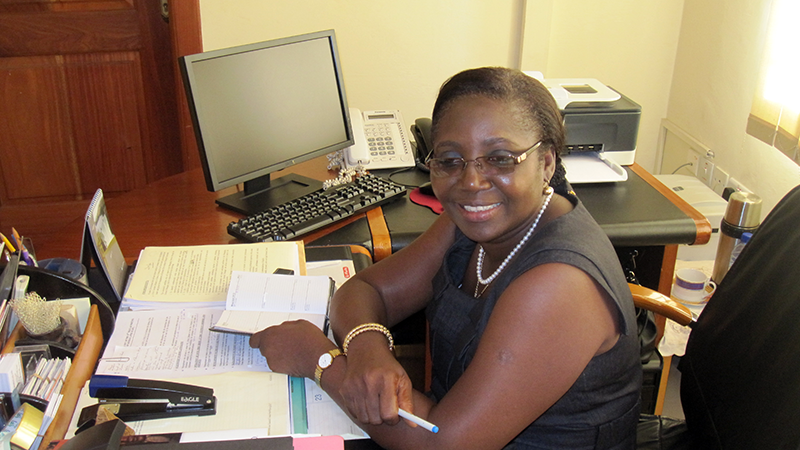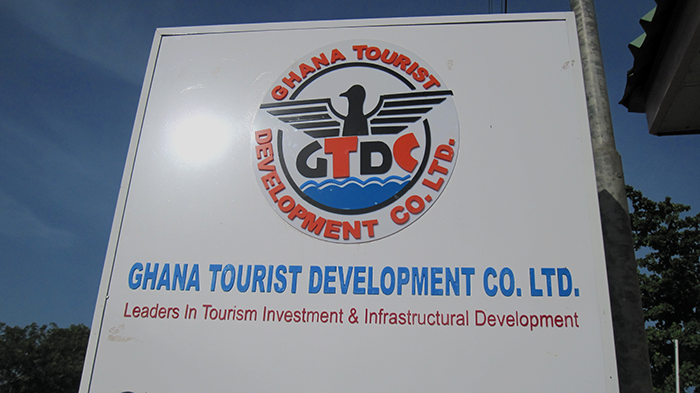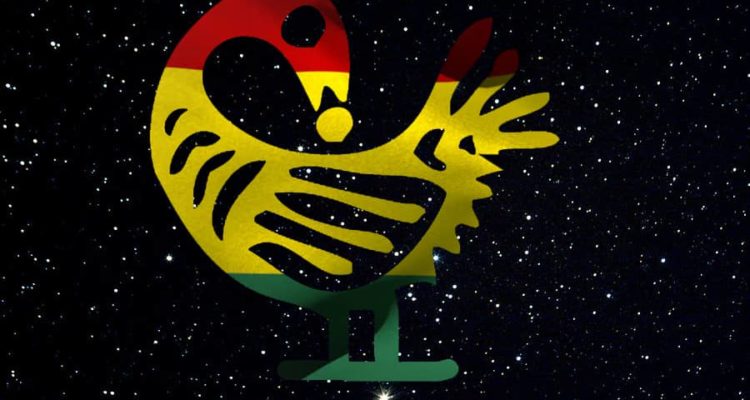Herein we revisit a Q&A with the late Emelia Brew Butler, a tourism sector executive in Ghana
Egg Magazine, in the person of Kwesi Nantwi, sits down to talk to the now late Mrs. Emelia Brew-Butler of the Ghana Tourism Development Company, Limited. Mrs. Brew-Butler is a trained scientist and an experienced development practitioner who now helms the GTDC, thus making her one of Ghana’s leading tourism officials. In our conversation with her, Emelia Brew-Butler covers tourism policy, planning and development in a country that has so much potential, this owing to the perception that Ghana is a safe, peace-loving, and welcoming country. Dearest Emelia, RIP. We use this interview of old to re-launch the Q&A section of our publication.

Please share your perspectives on Tourism
Basically, tourism involves moving from one place to the other for a purpose. The purpose could be for sightseeing, holidaying, pleasure, or education. The underlying factor is that the place to be visited has some attraction which compels the person to decide to move to that destination. From a management point of view, the tourist destination is the fundamental unit on which many complex dimensions of tourism are based. My perspective on tourism therefore revolves around the development of a well-developed, well-resourced, and well-structured tourist destination.
What would you say constitutes as domestic tourism, as against international tourism?
DOMESTIC TOURISM is when people take holidays, short breaks and day trips in their own country, for example funerals and weddings etc. INTERNATIONAL TOURISM is when people travel globally, outside of their region and home country to be more specific. This means a temporary movement of people from their place of residence to another place for a variety of reasons. These reasons include recreation, health and business.
What are the challenges facing the tourism sector in Ghana?
Like any other human endeavour, the existence of challenges cannot be ruled out. These challenges generally border on finance, human capacity and the lack of a maintenance culture. However, there are a number of challenges specific to the industry in Ghana. These are: one, inadequate budget allocation; two, a lack of effective branding and marketing programs, as well as three, the presence of overly-expensive tour and destination packages. Others are a lack of appropriate monitoring and evaluation systems and/or mechanisms as well as the prevalence of poor maintenance activities plus the lack of well-structured development projects and an allergy to innovation and adaptability to change.

What is the Ghana Tourism Development Company (GTDC) Limited set up to do?
GTDC was set up to:
- Promote, develop and enhance places of historic and scenic interest in Ghana
- Encourage holiday-makers, travelers and tourists to travel to and experience places of historic and scenic interest in Ghana
- Promote and advertise the tourism sector of Ghana, both locally and abroad
- Promote the establishment of tourism organizations
- Carry out functions related to tourism as it may fit the nation’s interest
GTDC describes itself as a pathfinder for tourism and infrastructural development. Please give an account of what GTDC has done or what it is doing to merit this distinction.
There are four trophies, so to speak, that we are proud of: The first is Novotel hotel. Novotel, which is strategically positioned in the heart of Accra, was the first star-rated hotel in Ghana.
GTDC has also contributed to the development of the duty free shop (DUFRY LTD) at the airport. The duty free shop has set the benchmark for almost all the other shops at the airport.
Additionally, GTDC formed the first travel and tour Company in Ghana, an enterprise which can be referred to as the light or pathway for all the other Travel & Tour Companies in the country.
GTDC also successfully upgraded and managed the Labadi beach for years.
GTDC is in partnership with Novotel, Akuaba Travel & Tour Company and the Diplomatic Shop of Accra. Can you please share with us the rationale for these partnerships?
The rationale for these three major investments was to create an international tourism relationship with the rest of the world. The Diplomatic Shops are strategically positioned at the arrival and departure lounges to welcome tourists and offer them world class products at duty free rates; just like they would purchase them in their home countries. Akuaba Travel & Tours serves as the travel and tour wing of GTDC by providing unique experiences for both tourists on arrival and those departing. Our car rental services are definitely second to none. Novotel provides a home away from home, serving up a luxurious experience both in accommodation as well as local and continental cuisines. Novotel has, over the years, offered world class accommodation facilities for members of the Diplomatic Corps who hail from various foreign and donor countries across the globe.
In Africa, countries like Kenya, Tanzania and Morocco are said to be leaders in tourism. How did they make their tourism industry so attractive to the traveller?
There are three major reasons that can be adduced for the success story of these three African countries. These are: [1] a dedication to tourism development, [2] funding and [3] the promotion of domestic tourism. These countries have exhibited a strong dedication to developing their most treasured and unique tourism destinations and activities. They also have developed different classes of accommodation packages to cater for the varying levels of tourists. Kenya, for example, allocates a substantive amount of its national budget to tourism development because of the foreign exchange revenue the tourism industry contributes to their national GDP. Tanzania and Morocco dedicate a lot of time, money and human resources to strengthening their tourism sector. They also practice community-based tourism, where indigenes are encouraged to take short holidays to their home communities in order to improve tourist attractions as well as to improve the social welfare of their people and of places.
What are the missing links with respect to Ghanaian tourism and what is your company doing to grow tourism in the country?
Ghana needs to redouble its dedication to its tourism destinations. Ownership conflicts also deprive the country of the necessary investments to improve our tourist attractions. Ghana also needs to increase its commitment and allocations to tourism development. The country’s financial challenges make it very difficult for one to venture into capital intensive tourism-based activities. Ghana also lacks top-notch human resources with which to develop international-level tourism. Additionally, poor monitoring and evaluation mechanisms deprive the country of the capacity to judiciously examine the actual caliber of tourists that visit the country as well as the full capacity needed to follow-up with measures that may increase tourist visitations.
What are the tourism potentials of Ghana which are yet to be harnessed?
These can be grouped into four main areas and they are: Health and Wellness Tourism (e.g. Spas), Agricultural Tourism (i.e. Agro-tourism), Sports Tourism (water sports and golf tourism) and Ecotourism.
How is your company gearing up to tap into these above areas?
GTDC is working with investors and other partners to develop and broaden the scope of tourism-related activities in Ghana – e.g. the Rest-Stops project along major highways in the country are designed to serve both domestic and international tourists. The company is also in discussions with partners to design and develop other affordable tourism infrastructures, such as chalets and log apartments. In connection with Agro-tourism, GTDC has discovered a large banana plantation at Osudoku which is ideal for a tourism destination venture. Sports tourism is still a niche market as far as Ghana is concerned. GTDC has also discovered two water body resources at strategic locations which are ripe for water sports. We are conducting all the necessary feasibility activities to ascertain the viability of these projects.
We understand you have a programme running which is called Travel Ghana. Why Travel Ghana? Please share with us any details.
THE CONCEPT: Travel Ghana was introduced as a tour service with the view to whip up interest in domestic tourism and to encourage individuals and groups to cultivate the habit of travelling. The goal was not only to make tours affordable, but also, to serve as an additional revenue generation source for GTDC. PROGRESS MADE: Since its inception, the business department has facilitated a number of tours, admittedly below our set targets for now. Among some of the institutions which patronized the Travel Ghana services are Jack & Jill Preparatory School, Labone SDA, Best Legacy, Nima Presby, St. Lutheran School, St. Andrew School and Tema Parents School. All these schools fall under our prime target segment. These institutions form part of a minor fraction of the target groups we have pitched the concept to. The marketing team has made contacts with well over two hundred institutions that fall within the target group. The team has however not been able to persuade most of the institutions to patronize the Travel Ghana package due to some impediments. CHALLENGES: The major difficulty the team is currently faced with has to do with the monetary interest of teachers and/or coordinators of these various institutions. They are reluctant to accept the Travel Ghana package due to the fact that when they organize such excursions or tours on their own, they are able to hoard some of the trip’s resources (i.e. money) for their personal use. MARKETING PROCEDURES: The marketing procedures used include the distribution of flyers at churches and other social gatherings and the positioning of flyers and brochures at strategic locations such as our malls and the Airport etc. Another strategy involves collaboration with the Student Representative Council Executives of Tertiary Institutions for tour programmes and events.
Your company manages receptive facilities at Assin Manso, Oda Big Town and Assin Praso, all in the Central Region. What is meant by “receptive facility” and what makes these three sites peculiar or significant?
A receptive facility is made up of an office, a cafeteria, decent washrooms and a museum plus shop. It is set up to cater to the needs of tourists when they visit particular tourist attractions. The receptive facility is where tourists are registered before being tour-guided to the attractions at site. The particulars of each receptive facility are as follows:
- The Oda Big Tree facility is actually located at Aprokumasi in the Eastern Region of Ghana. It is a peculiar tourist site because it is the site of the Biggest Tree in West Africa.
- The Assin Manso and Assin Praso facilities are located in the Central Region and are significant for their historical connections to the slave trade in Ghana. Assin Manso has the “Donkor Nsu” (Slave River) where the slaves were believed to have had their last bath. Assin Praso also has the European Cemetery and the remains of the fort/castle which the British resided in during the slave trade era.
Are there any areas in Ghana apart from the Central region which have tourism potentials you may want to develop?
There are two areas: Juapong – which may be developed into an island resort and Osudoku – which could become a paragliding site.
What are some other challenges facing your company?
Currently, we face three main challenges. They are [a] human resource development, [b] financial constraints and [3] local hesitancy or interference to development, owing to traditional beliefs.
How do you intend to address them?
We are in the process of recruiting qualified and effective personnel to lead our Business Development Department. Also GTDC is in talks with some investors to acquire the necessary funding for major projects. We have also discussed and resolved some of the major conflicts and interferences from Traditional Rulers and other indigenes at some of the various tourism destinations we have an interest in developing. We intend to educate the traditional folks to the benefits of these tourist attractions when it comes to their community and to our nation’s development.
What are your short and long term plans for growing tourism in the country?
For the short term we intend to upgrade the Tourist Receptive Facilities into world class tourism destinations and also construct well resourced Rest-Stops on major highways across the country. Our long term goals are to develop the Osudoku Paragliding site to support the yearly-celebrated Kwahu Easter Paragliding Festival. Our purpose is to also equip our local pilots and design a year-long programme to celebrate the Paragliding Festival. Another area we plan to develop is the Island at Juapong. We want to develop it into a world class Resort and Spa Center and we also want to partner with investors to develop Marine Drive into a first class or preferred Beach Resort right at the heart of the city of Juapong.
Lastly, it is said that tourism could become the third highest foreign exchange earner for the country. Do you share that view and why?
Yes. Ghana has witnessed a tremendous growth in her tourism industry over the last 15 years. This growth may be marked by our effective policies and programmes as well as an increase in Infrastructure development in addition to the devising of comprehensive tourism strategies and packages. Concomitantly, an increase or growth in our foreign exchange earnings and its contribution to GDP has been realized. Domestic Tourism is also gradually gaining ground in the country. This means that the revenue generated internally will increase steeply in the next few years. These facts are proof that the Tourism Industry could become the third highest foreign exchange earner for the country.
Follow us on social media:

